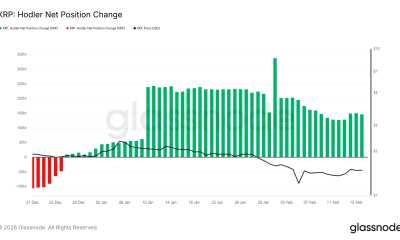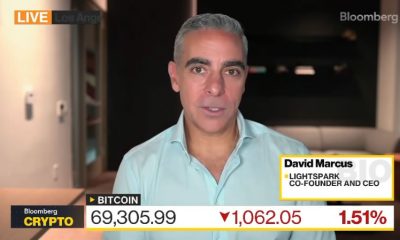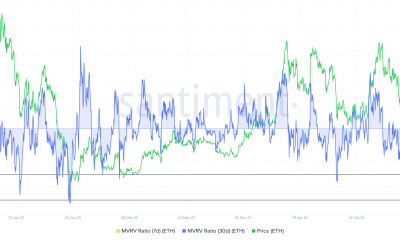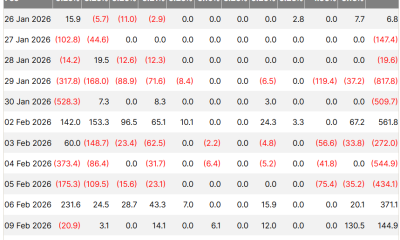I recently took part in a preview of the MTG TMNT Universes Beyond set, and while many cards were inadvertently revealed through the Lorwyn Eclipsed Draft Set, there’s still plenty to talk about. As someone who grew up in the 80s, completely obsessed with the Teenage Mutant Ninja Turtles games, cartoon, and comics, seeing this come to life is something I’m very excited about. I get it, though, not everyone is into Universes Beyond, but that’s a different discussion, for a different day.
As one of the first sets of the year, it’s got a lot of pressure on it, especially after the incredible Lorwyn Eclipsed expansion. Today we’re going to highlight some of my favorite cards in the preview session for MTG TMNT, which I think could make a splash in both Standard and Commander.
MTG’s TMNT set offers some unbeatable flavor from the games, comics, and shows
TMNT is coming to MTG on March 6, 2027, and with it comes a wide assortment of cards, spanning the franchise’s rich history. You’ll see art that represents the original Image Comics, the various cartoons, and even the video games. Some of them are just fantastic representations of the rich history of the franchise in obvious, or sometimes subtle ways.


- Turtles in Time (Blue Sorcery): Return all creatures to their owners’ hands. Each player may shuffle their hand and graveyard into their library, then, each player who does draws seven cards. Exile this card.
- Ninja Teen (Black Class): Level 1: Whenever a creature you control leaves the battlefield, each opponent loses 1 life. Level 2: Creatures you control get +1/+0 and have Menace. Level 3: Creature cards in your graveyard have Sneak 3B. You may cast creature spells from your graveyard using their Sneak abilities.
- Turtles Forever (White Instant): Search your library and/or outside the game for exactly four legendary creature cards you own with different names, then reveal those cards. An opponent chooses two of them. Put the chosen cards into your hand and the rest into your library.
- Slash, Reptile Rampager (Red Legendary Creature): Alliance: Whenever another creature you control enters, Slash deals 2 damage to each opponent. Whenever Slash attacks, create a 2/2 red Mutant creature token.
Turtles in Time represents one of the most iconic games in the franchise, and is also a powerful MTG card in its own right. All creatures return to their owners’ hands (bye bye, Tokens!), and then players can shuffle their hands/graveyards back in, for seven fresh cards. I’d love to see this be a reason you splash blue into a Chaos/Wheel of Fortune deck.
Ninja Teen features Karai, as the titular Ninja Teen, instead of the turtles, and that’s fine! It’s a great card, and feels more like the Foot Clan, anyway. That final power, where you can sneak creatures in from the graveyard is fantastic recursion, and it doesn’t appear to have any restrictions! What I mean by that, is those cards don’t get exiled when they die again.
Turtles Forever is a great way to tutor up your favorite legendary creatures from your sideboard or main deck, and it doesn’t have to be TMNT MTG cards either! You could grab Leonardo, Krang, and then Rhys the Evermore and Fire Lord Ozai. Whomever you want!
Slash, Reptile Rampager is an MTG card I wanted to highlight, because it’s subtle, and in the background, but his favorite palm tree, Binky is in the background of the card art. It’s also an excellent card that deals free damage whenever you bring in a creature, and triggers itself, simply by attacking.


Speaking of flavor, I also wanted to highlight the Kevin Eastman chase cards, because I’m a huge fan of the original comics. Kevin Eastman drew some brand-new, never-before-seen art for the turtles, which you can see above. They’re also printed with a stamp of his signature in gold.
The Ninja Teens (and their friends) are making a splash in the MTG TMNT set
Like the Spider-Man set, the MTG TMNT set will feature several versions of the Teenage Mutant Ninja Turtles, and some of their villains. However, I don’t think it will be quite as overwhelming as the Spider-Man set felt.


- Don & Leo, Problem Solvers (White/Blue Legendary Creature): During your End Step, exile up to one artifact and creature you control, then return to them to play under their owners’ control.
- Raph & Mikey, Troublemakers (Red/Green Legendary Creature): Trample/Haste, whenever this card attacks, reveal cards from the top of your library until you reveal a creature. Put that into play tapped and attacking, and the rest on the bottom of your deck in a random order.
- Casey Jones, Vigilante (Red Legendary Creature): When this card enters, draw three cards. At the beginning of your next upkeep, discard three cards at random.
I love Flicker mechanics in MTG, so Don & Leo, Problem Solvers might be the most likely Commander for me, other than Krang, Utrom Overlord from this TMNT set. You can flicker a creature and artifact each turn, to get lots of ETB triggers going.
Speaking of easy ways to get things done, Raph & Mikey, Troublemakers let you sneak creatures into play, and while their Mana Value is high, you can easily ramp them into play, and cheat out your biggest, baddest cards without having to put them back, or sacrifice them.
Casey Jones, Vigilante is for those red decks that just need more card draw. If you use all the cards in your hand though, you don’t have to discard three at random, on your next Upkeep, either! Just some food for thought.


- Leonardo, Cutting Edge (White Legendary Creature): Sneak W, Lifelink, whenever you gain life, put a +1/+1 counter on Leonardo.
- Donatello, Mutant Mechanic (Blue Legendary Creature): Tap to put 3 +1/+1 counters on target artifact you control. It becomes a 0/0 Robot in addition to its other types. Do this only as a Sorcery. Whenever an artifact you control is put into a graveyard from the battlefield, if it had counters on it, put those on up to one target artifact or creature you control.
- Michelangelo, Improviser (Green Legendary Creature): Sneak 2GG, whenever he deals combat damage to a player, you may put a creature card and/or land card from your hand onto the battlefield.
- Raphael, Most Attitude (Red Legendary Creature): Menace, Alliance, Whenever Raphael attacks, until end of turn, you may play a card exiled with Raphael.
Leonardo, Cutting Edge just needs Trample, and he’d be amazing in any Soul Sisters deck. Not that would be hard to give to him, either. Donatello, Mutant Mechanic is going to turn those non-creature artifacts into some seriously powerful forces, and even has a built-in Ozolith ability, just for artifacts. Want to make sure your counters don’t go to waste? Bring him.
Michelangelo, Improviser is amazing for so many reasons. Cheating in wildly huge cards, and also lands at the same time? He doesn’t specify “Basic” Lands either, so you can cheat in your fetch lands, Triomes, Dual Lands, or any of your favorite, overpowered cards. Raphael, Most Attitude allows you to exile cards when another creature you control enters, and then you can play those, if he attacks. This TMNT MTG set is filled with both flavor, and some truly useful cards.
The MTG TMNT expansion also features some of the most sinister villains in card form
What would this TMNT MTG set be without awesome, terrifyingly powerful villains? From the brain behind the operation itself, to the annoyingly strong Mousers, it’s a pretty great series of reveals for the bad guys. Especially if you have ways to cheat them into play.


- Krang, Master Mind (Blue Legendary Artifact Creature): Affinity for Artifacts. When it enters, if you have fewer than four cards in hand, draw cards equal to the difference. Gains +1/+0 for each other artifact you control.
- Krang, Utrom Warlord (Colorless Legendary Artifact Creature): Flying/Trample/Indestructible/Haste, other artifact creatures you control have Flying, Trample, Indestructible, and Haste.
- Shredder’s Technique (Black Sorcery): Sneak B, Destroy target creature or enchantment. If an enchantment was destroyed this way, you lose 2 Life.
- Ravenous Robots (Red Artifact Creature): Whenever you cast an artifact spell, create a 1/1 colorless Robot artifact creature token. R, Tap this, creature tokens you control gain haste until end of turn.
Krang, Master Mind can come into play faster, thanks to Affinity for artifacts (costs 1 colorless less for each artifact you control), and potentially allows you to draw cards! Then it grows stronger for each artifact you have, which is another nice bonus. However, Krang, Utrom Warlord is just filth. Cheat that 9-drop into play to make your artifact creatures into indestructible combat machines.
I guess it’s time for me to make that colorless artifact Commander deck, huh? Ravenous Robots feels like it would settle in nicely with Slash, or other artifact decks. Churning out free value in the form of robot creature tokens, then giving them all haste and swinging in? Huge value! I’m here for it.
I’m far more excited about the TMNT MTG set, compared to some of the other Universes Beyond releases (with the obvious exception of Final Fantasy). There’s lots of powerful cards, great value, and a clear love of the IP it’s based on.
Check out our other MTG guides and features
Are you stuck on today’s Wordle? Our Wordle Solver will help you find the answer.
Edited by Jason Parker




























































